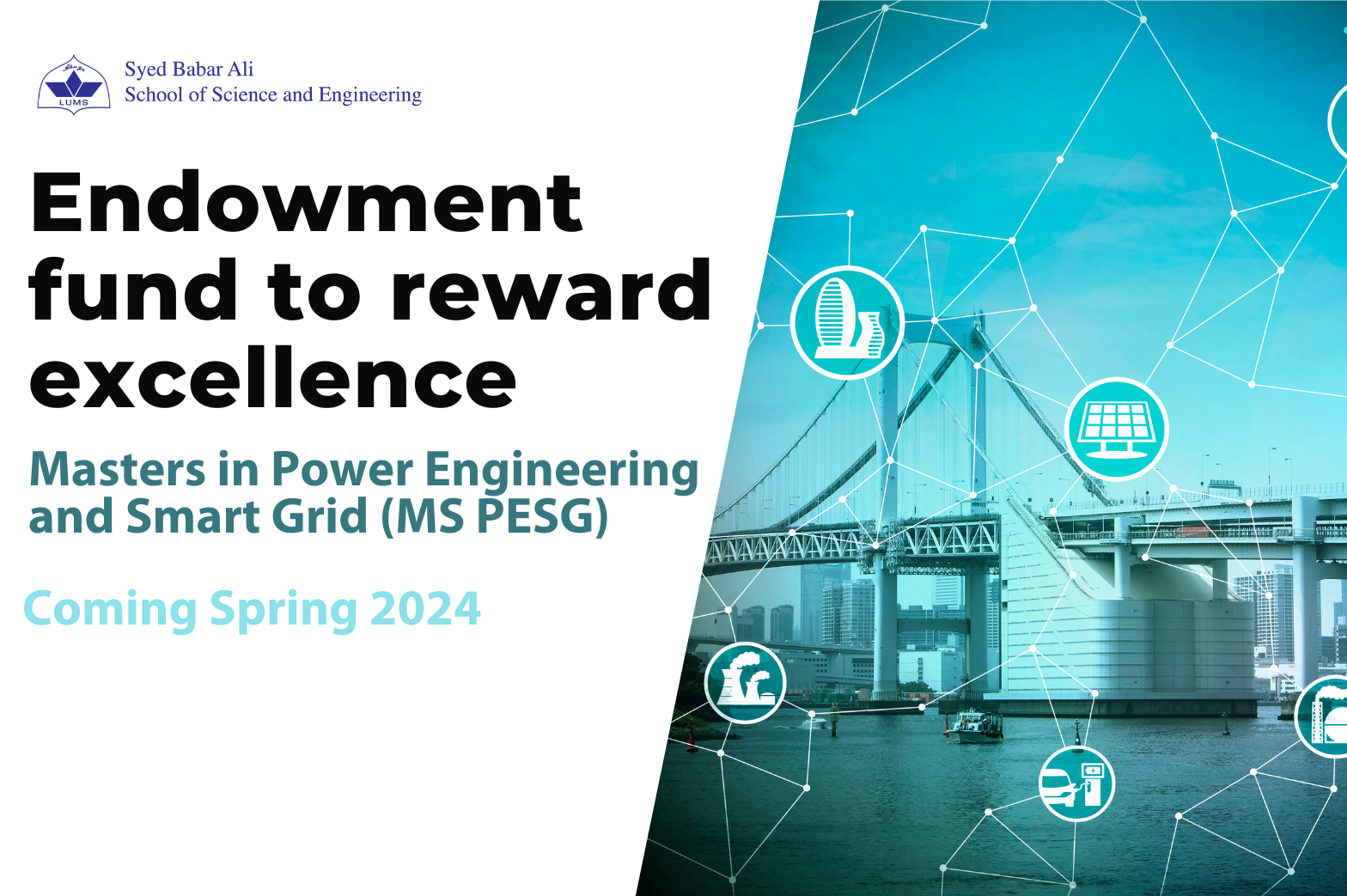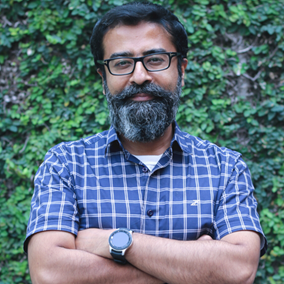
Endowment fund created to reward excellence in new Masters in Power Engineering and Smart Grids (MS PESG)
The Electrical Engineering (EE) department at LUMS is set to launch a new program in Spring 2024 called “Masters in Power Engineering and Smart Grids (MS PESG).” This will be the third MS program offered by the department, following the success of MS Electrical Engineering and MS Digital and Embedded Systems. This exciting new initiative is backed by the creation of an endowment fund to recognize exceptional students joining the MS PESG program. The well-established ecosystem in the field of smart grids at the Department of Electrical Engineering convinced donors to contribute to the generous endowment fund of 25 million rupees.
Led by a team of faculty members, including Dr. Hassan Abbas Khan, Dr. Nauman Zaffar Butt, Dr. Naveed Arshad, Dr. Raheel Zafar, Prof. Nauman Ahmad Zaffar, and Dr. Naveed Ul Hassan, the MS PESG program will be open to local and international students. EE department has assimilated the academic support with all the resources required for this program, and leading courses are already being offered. A recent successful course, titled Junior design studio on electric vehicles, exemplifies the well-established ecosystem.
The MS PESG initiative stems from the research already being done at the EE department, supported by the student body. The university aspires for the students to extend their contribution, which will ultimately translate into concrete solutions to global problems.
Objectives of the new MS PESG program
Dr. Momin Uppal, Associate Professor and Chair of the EE department at LUMS explained that the program was instigated after realizing the discernible need for specialized knowledge in multiple areas, including modernizing the grid (such as contriving the smart grids), sensing technologies, data analytics, machine learning, and renewable energy aspect. Another compelling indicator is BS and MS students’ rising interest towards specialization in this area.

The MS PESG program aims to enable students to be well-versed in these essential areas, with a focus on addressing open problems and research challenges. For instance, with multiple energy sources now available, including traditional generation, renewable energies generated by private companies, and solar panels in homes, how do all these and the reverse meeting aspect impact the grid? It requires substantial analysis to solve this enigma. Another challenge is investigating whether the traditional grid is the best option for the electrification of rural areas. Microgrids powered by renewable energy sources could provide a viable solution for villages that are currently inaccessible to the national grid due to distance.
The Endowment Fund
The endowment fund created to support the MS PESG program is a significant component of this initiative. Unlike existing scholarships, which are generally need-based, this fund is designed to also recognize merit and to reward excellence. An anonymous individual donor has provided the funds, which are transformed into an endowment fund with the donor’s consent to remain sustainable. The fund has received PKR 15 million, and the remaining PKR 10 Million will be transferred by the end of August 2023.
Upholding the general understanding of an endowment fund, the principal amount would be invested, with the proceeds being utilized to confer merit-based tuition-fee scholarships to MS PESG students for two years. This funding model is much needed for breeding excellence in this specialized area in Pakistan. It will enable exceptional students to participate in a world-class program. They will have the opportunity to be part of an academic milieu and work on impactful research with the brilliant EE faculty.
Dr. Momin encourages other institutes to adopt similar funding models, provided donors are confident in their abilities to deliver and see the value in what they are doing. The fact that the dignitary provided the endowment is a privilege that shows faith and confidence in the capabilities and potential of the people at LUMS.

